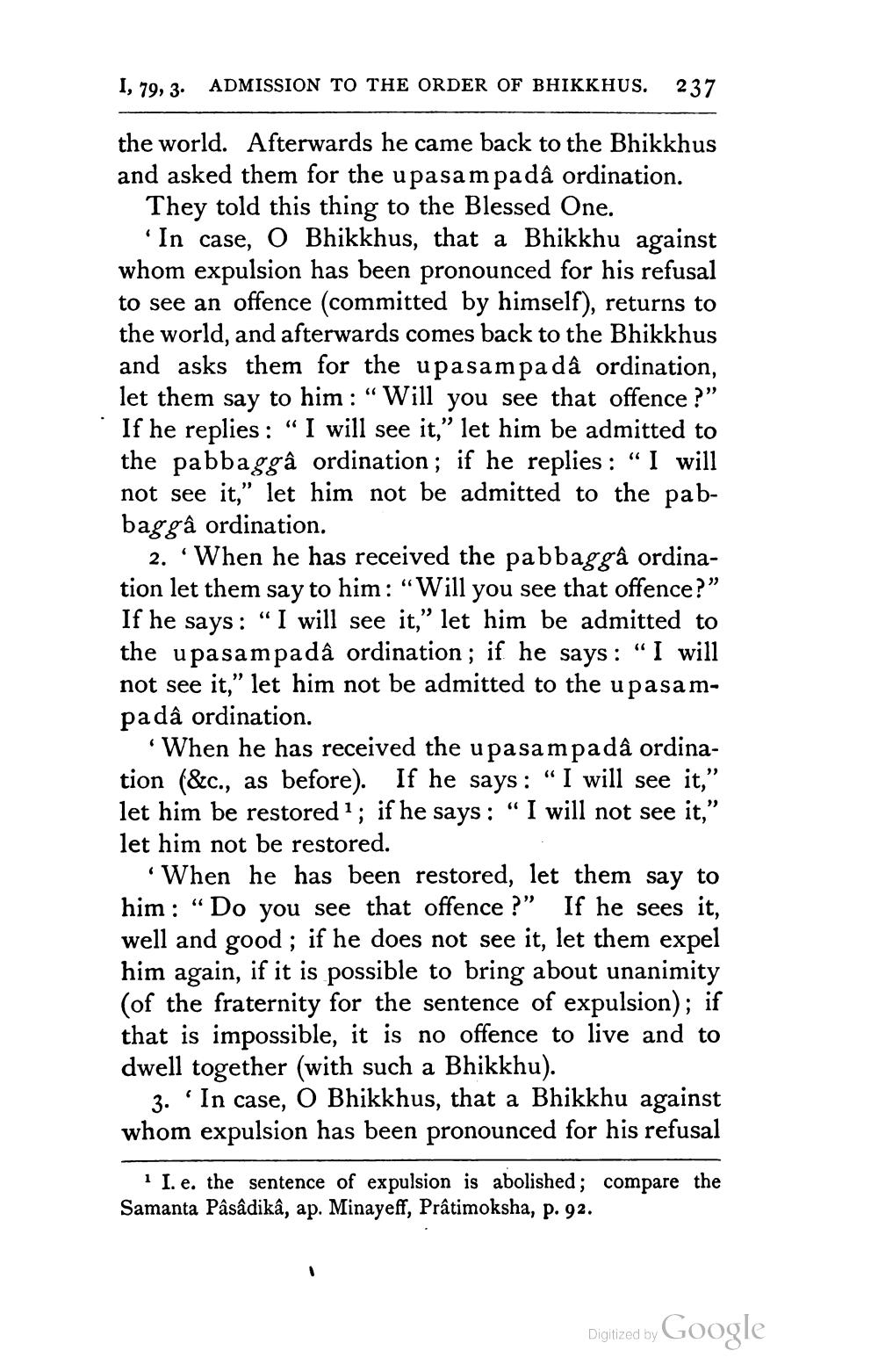________________
I, 79, 3. ADMISSION TO THE ORDER OF BHIKKHUS. 237
the world. Afterwards he came back to the Bhikkhus and asked them for the upasam padâ ordination.
They told this thing to the Blessed One.
'In case, O Bhikkhus, that a Bhikkhu against whom expulsion has been pronounced for his refusal to see an offence (committed by himself), returns to the world, and afterwards comes back to the Bhikkhus and asks them for the upasampa dâ ordination, let them say to him: “Will you see that offence ?" If he replies: “I will see it,” let him be admitted to the pabbaggâ ordination; if he replies: “I will not see it,” let him not be admitted to the pabbaggâ ordination.
2. When he has received the pabbaggâ ordination let them say to him: “Will you see that offence?” If he says: “I will see it,” let him be admitted to the upasampadâ ordination ; if he says: “I will not see it,” let him not be admitted to the upasampadâ ordination.
When he has received the u pasa mpadâ ordination (&c., as before). If he says: “I will see it,” let him be restored 1; if he says: “I will not see it," let him not be restored.
When he has been restored, let them say to him: “Do you see that offence ?" If he sees it, well and good ; if he does not see it, let them expel him again, if it is possible to bring about unanimity (of the fraternity for the sentence of expulsion); if that is impossible, it is no offence to live and to dwell together (with such a Bhikkhu).
3. 'In case, O Bhikkhus, that a Bhikkhu against whom expulsion has been pronounced for his refusal
* I. e. the sentence of expulsion is abolished; compare the Samanta Pâsâdikâ, ap. Minayeff, Prâtimoksha, p. 92.
Digitized by Google




